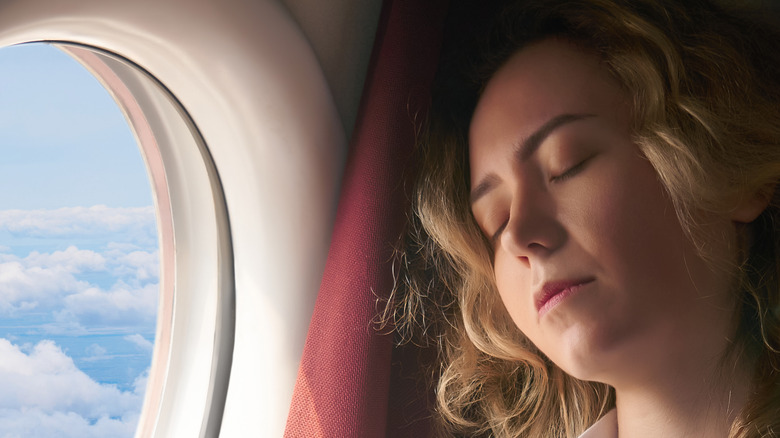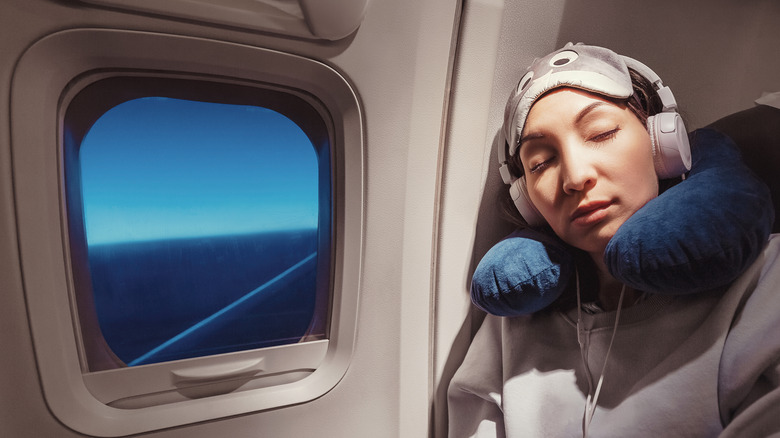The Real Reason You Feel Tired On An Airplane
When walking down the aisle of an airplane, you'll likely see rows upon rows of snoozing passengers wrapped up tightly in blankets, heads lolling to one side, with eye masks firmly in place. Why is it that so many plane travelers board the plane, take their seats, and seem to be fast asleep within minutes of takeoff? Is it the gentle rocking sensation that brings us back to the days of falling asleep as a kid in our car seat? Maybe, but science has some alternative suggestions as to why so many of us are off to dreamland as the first stop on the way to our destination.
Plane travel can have unique effects on the body that other modes of transportation do not. According to the Cleveland Clinic, air travel can cause us to become dehydrated, bloated, stressed, and can interrupt the balance of air pressure within the ear. Thankfully, yawning can help restore that balance by helping you pop your ears. Even better, you may not have to work all that hard at willing yourself to yawn — the air in the cabin may do the work for you.
Pressure, acceleration, and humidity may be making you sleepy
One of the primary reasons one may feel sleepy during flight is due to the decrease of cabin pressure inside the airplane (via Monroe Aerospace). Once you reach around 31,000 feet (or the pressure equivalent of about 6,000 feet above sea level), the air pressure in the cabin has dropped below that of what we're accustomed to in our day-to-day lives. As a result, this decreases our oxygen intake and can lead to fatigue.
In addition, the dry air circulating inside the cabin can also induce feelings of sleepiness (via Monroe Aerospace). The air inside of a plane is about 3 times dryer than the air in our homes. While your house generally stands at a rate of at least 40% humidity, plane cabin air, on the other hand, contains only about 20% humidity. This significantly drier air can cause you to feel tired.
Lastly, airplane takeoff may also have something to do with your urge for a little shut-eye. According to Inverse, the acceleration that occurs in order to achieve liftoff puts force on our bodies. This causes them to think we're actually in a horizontal position, rather than vertical. For those who find it difficult to sleep upright on a plane, takeoff may just do the trick.


